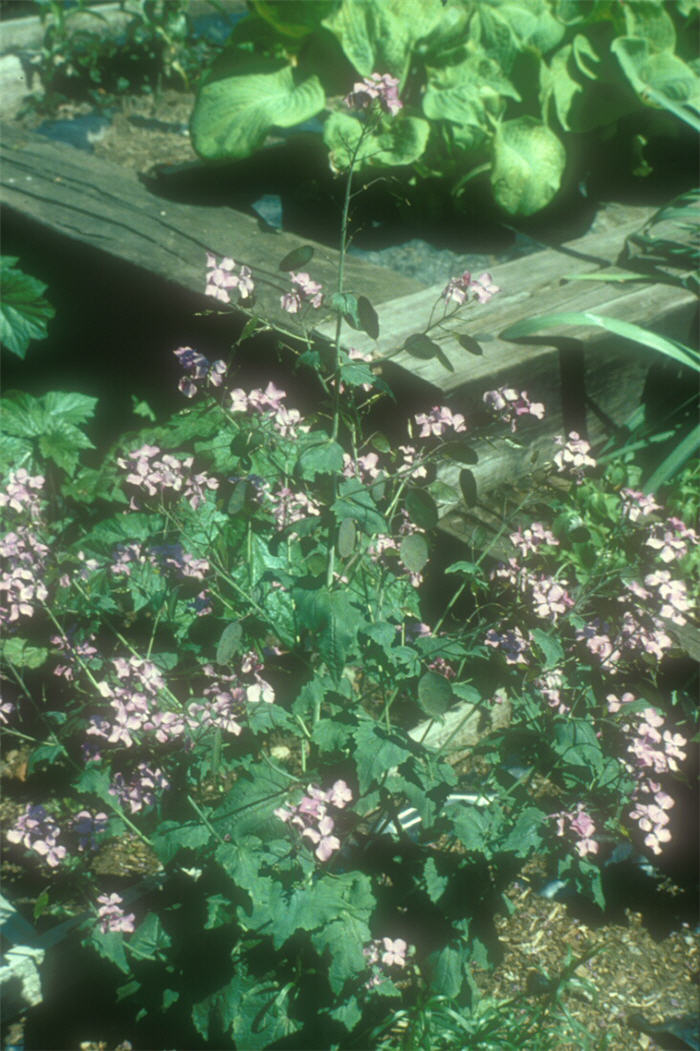| Botanical Name: Lunaria annua | |
| Common Name: Money Plant |

-
Anatomy
-
Culture
-
Design
Plant Type
Perennial, Annual, Biennial
Height Range
1-3'
Flower Color
Pink, Purple, White
Flower Season
Spring
Leaf Color
Green
Bark Color
n/a
Fruit Color
Brown, Green, White
Fruit Season
Summer, Fall
Sun
Full, Half
Water
Low, Medium, Extra in Summer
Growth Rate
Moderate
Soil Type
Sandy, Clay, Loam, Rocky, Unparticular
Soil Condition
Average, Rich, Well-drained, Moist, Dry
Soil pH
Neutral
Adverse Factors
Invasive
Design Styles
English Cottage, Meadow, Mediterranean, Ranch, Spanish
Accenting Features
Fragrance, Showy Flowers
Seasonal Interest
Spring, Summer, Fall
Location Uses
Background, Perennial Border
Special Uses
Cut Flowers, Naturalizing, Small Spaces
Attracts Wildlife
Butterflies
Information by: Stephanie Duer
Photographer:
Photographer:
-
Description
-
Notes
Money plant is an old-fashioned garden biennial. Its leaves are oval to heart-shaped, and form dense basal clusters from which tall, erect stems emerge. The foliage thins out towards the tops of the stems. The flowers emerge in clusters at the stem tips; simple four-petaled flowers in pink to orchid to lilac in April and May. The flowers give way to round to oval, paper thin, silver dollar sized pods that become translucent as they age. Excellent in dried arrangements, pick them with the stems when the pods are still green for a long lasting floral display. Grows about 2 to 3 feet tall and about a foot wide.
Grow in full to part sun in well drained, clay-loam to sandy-loam soils. A biennial, in the first year it produces only leaves, but blooms and pods in the second year. If you allow some pods to dry on the plant, they will freely self sow and you will always be "in the money." Also commonly called moonwort, honesty, silver dollar plant, and lunaria.